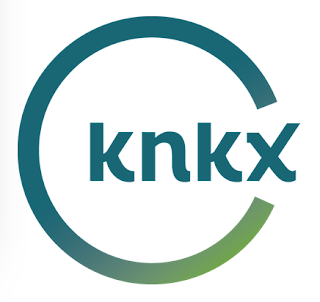In
the movie City Slickers, Curly (played by the late Jack Palance) gives Mitch
(played by Billy Crystal) sage advice about what he needs to do to succeed in life:
“Do one thing and do it well!”
This
sums up a key philosophy of public radio programming: Do one format and do it well!
As
KNKX, Seattle/Tacoma searches for a new Music Director for its Jazz and Blues
program stream [link], it brings up the question whether a dual format of NPR
News and music is worth it.
Most of the public radio system has already
decided. Fact: KNKX [link] is one of
only two PPM-market stations that have NPR News and music on the same frequency. KCRW in LA is the other station.
Back
in the 1970s and 1980s almost every public radio station had a dual format. Some
even had three or four formats. Such news stalwarts as WNYC-FM, WEBZ and KCFR
all featured a mix news and music.
When
public radio began growing up in the 1990s, programmers found that Curly’s
advice was true. Most stations focused their programming on all news, talk and
other spoken word shows. KQED is considered to be the first station to switch
to 24/7 news/talk. The most recent was WABE, Atlanta, who was pushed into
dropping its Classical portion of their dual format because of new
full-time news competition.
There
is no doubt that focusing on one format works. Also there is no doubt that KNKX
is not “broken.” The station has done very, very well since parting ways with
Pacific Lutheran University. KPLU became KNKX in 2016 and public radio folks
applauded.
KNKX
is successful by any measure. According to the most recent audited financial
report on the stations website, KNKX brought in $3.5 million in revenue during
the period from 1/1/17 to 5/31/17 – five months. Members provided around $1.4
million (40%), underwriting brought in $1 million (29%) and CPB added another $504,000
(15%). These are signs of a very, very
healthy noncommercial business.
By
all accounts, KNKX's local news coverage is excellent. Their Jazz and Blues
programming is world-renowned. KNKX’s 24-hour jazz stream, Jazz24, reaches thousands of people around the globe.
 |
| Joey Cohn |
If
anyone can make this dual format work it is GM Joey Cohn, a veteran programmer
with deep knowledge of both Jazz and news.
System pro’s such as Director of
Content Matt Martinez, Digital guru Justin Steyer and News Director Erin
Hennessey and others show that KNKX has the houses to win.
But,
what about KNKX’s Nielsen Audio PPM ratings trends?
On
May 24th [link] Spark News featured four-year ratings
trends for 20 full-time NPR News/Talk stations. Almost every station showed
dramatic increases in AQH share and estimated weekly listeners. So,we ran the
numbers for two outliers in the study, KNKX and KCRW.
On
the left is the four-year trend line for KPLU/KNKX. The station had its largest number of
weekly listeners in April 2014. The number of weekly listeners was down 2% by
April 2018.
The
four-year trend is very different for cross-town NPR News/Talk station KUOW.
Like many full-time
news/talk stations, KUOW’s estimated number of weekly listeners continues to
grow from the record high levels around the 2016 election.
Of
course there are a lot of prevailing factors. KPLU was “sold” to KUOW. Then the folks at then-KPLU started their own
nonprofit organization and quickly raised $8 million. They got the license and
the station became KNKX.
Though
things turned out well, that time of uncertainty was gut-wrenching and likely
had an impact on the station’s sound.
For
comparison, we looked at the other major dual format station, KCRW. As the
chart on the left shows, KCRW’s four-year trend with NPR News and Triple A music
is similar to KNKX. KCRW’s largest number of estimated weekly listeners was
actually before the 2016 elections.
KCRW
also competes with a full-time NPR News/Talk powerhouse, KPCC. KPCC’s four-year trend is very similar to KUOW’s.
Like KUOW, KPCC’s audience has continued to grow after the election.
These
are very different ratings performances by two dual format stations in similar
circumstances. It is difficult to know if the ratings at KNKX and KCRW are
being driven by news programming or music programming or both. Spark News will be in contact with Joey Cohn
and we will let you know what we learn.
To be continued…








KNKX and KCRW are exceptions in major markets, plus they have a station that can operate as the full time NPR News/Talk station. Also duel formats can work and are preferred in rural community like KSUT, although those are becoming a handful. Personally I prefer one or the other, but their is enough of a group of people that keep these block programmings ongoing. With KNKX what does the audience really like? Jazz/Blues NPR's Flagship programs or BOTH!!!! Plus air a program that their crossover rival does not...maybe.
ReplyDeleteThe tend is towards consistency. Even KRCC in Colorado Springs was late to the party but proved to have mad the right choice and focus on what grew their audience base and not constantly trade audiences, but not throw the eclectic music fans off completely.